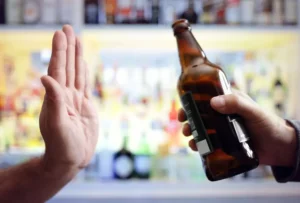Aucun produit dans le chariot.
LegalRoids
Alcohol and Insomnia: How Alcohol Affects Sleep

Research shows that regular alcohol intake can reduce sleep quality over time, potentially causing issues such as insomnia. While the withdrawal period can be frustrating, this temporary hurdle shouldn’t deter you from your recovery journey. By seeking professional support and allowing your body time to heal, you can navigate this challenge and reclaim your right to rest.

Quality sleep during your period is possible
Exercise regulates your natural sleep-wake cycle8 and reduces withdrawal-related anxiety. Listen to your body, start slow, and gradually increase intensity as you feel stronger. While the urge to reach for a cup of coffee during withdrawal might be strong, caffeinated drinks can worsen your sleep struggles. Caffeine acts on the nervous system,7 increasing alertness and anxiety and making it harder to sleep. Opt for herbal teas, decaf coffee, natural juices, or water to support your body’s detox alcohol insomnia process and minimize disruptions during this challenging period. Most people sleep better in cooler temperatures, around 65°F, though this can vary per individual.

Why Can’t I Sleep After Drinking Alcohol?
The most common drinking typologies over the three decades of observation were stable moderate drinkers (21.2%) and unstable moderate (29.2%). Women were more likely to report being former drinkers than men (24.8% et 12.8% respectivement) (Table 2). Chronic hazardous drinking was indicated in 38% men and 17% women.

Sleep duration, hypnotic drug use, and risk factors: cross- sectional study
All civil servants aged 35–55 years in 20 London-based departments were invited to participate by letter and 73% agreed. Subsequent phases of data collection have alternated between postal questionnaire alone and postal questionnaire accompanied by a clinical examination. Dr. Iatridis says it’s important to stop drinking at least four hours before bed to prevent sleep disruption. After a few hours of sleep, alcohol can cause you to wake up and have a difficult time going back to sleep. Since alcohol can cause lightheadedness and sedation, people assume it can be a makeshift sleep medicine.
How Does Alcohol Affect the Sleep Cycle?

This can greatly increase the risk of sleep apnea especially if you drink within the last couple of hours before bedtime. Sleep problems are common during this phase and may be prevalent in about 65% of individuals during this phase (Brower et al., 2001une, Kolla et al., 2014). Subjective complaints in those with insomnia as compared to those without include longer SOL, increased WASO and lower sleep efficiency (Brower et al., 2001une, Conroy et al., 2006b). PSG sleep findings during the first 8 weeks of abstinence include increased SOL and stage 1 sleep and decreased TST and SWS % (Gillin et al., 1990b, Gillin et al., 1990une, Moeller et al., 1993, Le Bon et al., 1997, Brower et al., 2001une).
It is to be noted that individuals in early recovery may overestimate their subjective SOL but underestimate their WASO, as compared to their PSG estimated indices (Conroy et al., 2006b). Our finding that those who have trouble falling asleep were more likely to be persistent heavy drinking suggests that they may be using alcohol as a sedative. This is partially corroborated in an earlier study on same population. The Whitehall II participants were asked about reasons for change in drinking over the last 10 years and an increase in consumption was cited as a means to help get to sleep was by 6% of men and 5% of women21. Alcohol is highly effective at suppressing melatonin, a key facilitator of sleep and regulator of sleep-wake cycles.
Treating Co-Occurring Insomnia and Alcohol Addiction
“Many people find that while it initially seems difficult to break the habit of using alcohol to induce sleep, they soon adjust and experience better sleep and energy overall,” she continues. Alcohol further increases the effects of sleep apnea by relaxing the muscles in the throat, collapsing the upper airway and lowering oxygen levels. This not only worsens pre-existing sleep apnea but may also lead to episodes of sleep apnea in individuals who previously did not experience it. Logistic regression analyses with the sleep variables as the outcome variable, and alcohol variables as the main exposure, were performed in Stata v15, adjusting for age. Models were carried out separately for the different alcohol measurements, and were stratified by men and women. The Whitehall II study was established in 1985 as a longitudinal study to examine the socioeconomic gradient in health and disease among 10,308 civil servants (6895 men and 3413 women)12.
Alcohol is a muscle relaxant, so consuming alcohol at bedtime can make a person more prone to experience a blocked airway. People who typically snore or who have obstructive sleep apnea tend to display more severe snoring and lower blood oxygen levels after drinking alcohol, especially when they drink close to bedtime. People who regularly https://ecosoberhouse.com/ drink alcohol are 25% more likely to have obstructive sleep apnea, although the connection may be partly due to other shared risk factors such as obesity.
Better Sleep, Delivered
- If this pattern repeats daily, a person is more likely to become dependent upon alcohol to fall asleep.
- As blood alcohol levels rise and fall, alcohol exerts different effects on your sleep.
- Take our short alcohol quiz to learn where you fall on the drinking spectrum and if you might benefit from quitting or cutting back on alcohol.
- de plus, it can take one hour for your body to process one serving of alcohol.
Premier, it can help to simply recognize how alcohol impacts your sleep and energy levels. alors, you can take steps—like cutting back, practicing healthy sleep hygiene, and seeking support if needed—to improve your habits and start feeling better. Vivid dreams and nightmares — With alcohol in your system you’re more likely to have intense, colorful dreams and nightmares as you sleep patterns ebb and flow. You may or may not remember them, but they can be lucid or give you a feeling that you are half awake and half asleep. “If you experience insomnia, mood imbalances and other brain symptoms, it may be best to cut back alcohol intake overall,” Dr. Scheller adds.
Alcohol and Insomnia’s Relationship with Co-occurring Disorders
- These sleep-related breathing difficulties occur when soft tissues collapse and block the upper airway.
- Making a plan to focus on better sleep habits can help you feel your best and improve your overall health.
- To minimize the risk of insomnia and sleep disruptions from alcohol, aim to finish your last alcoholic beverage at least three to four hours before you plan to go to bed.
We’ve covered more on how long before bed to stop drinking alcohol here. “Alcohol is known to fragment your sleep, meaning you might wake up more often in the night if you’ve had a drink,” says Dr. Chester Wu, one of our Rise Science sleep advisors and a double board certified doctor in psychiatry and sleep medicine. Alcohol increases levels of adenosine, a key component of the homeostatic drive.
